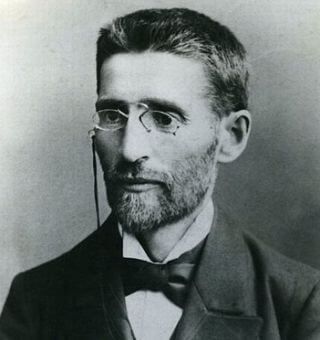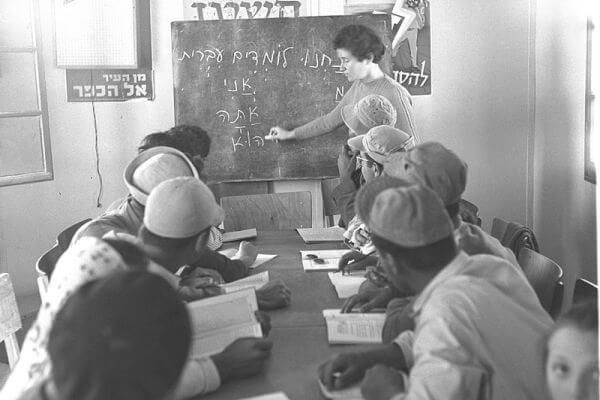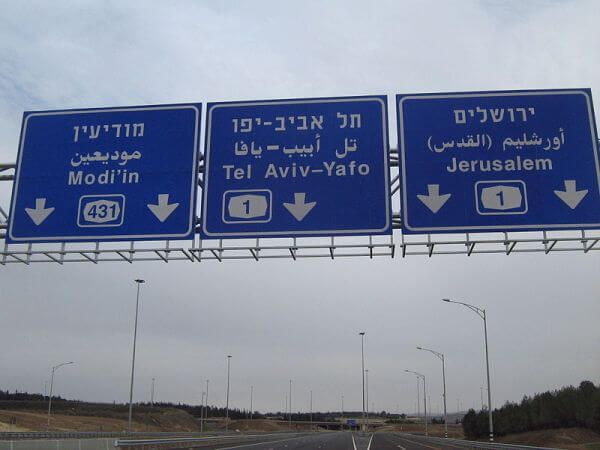Walking through the streets of Israel, one of the most unique aspects of the country and people is the Hebrew language. Israel is the only country in the world where Hebrew is the national language. The Hebrew language today is very different from the Hebrew of the Torah. It has been through a long journey.
Even today, Hebrew is going through changes, not only in the language itself, but also in the perceptions of it and what it represents.
Hebrew Language in History
The evolution of the Hebrew language can be split into five distinct time periods:
- Biblical Hebrew
- Mishnaic Hebrew
- Medieval Hebrew
- Renaissance Hebrew
- Modern Hebrew
According to Jewish tradition, Hebrew was the language by which God created the world. It was also the world’s tongue until the tower of Babel, when mankind was scattered, divided into 70 languages. Archeological evidence of the Hebrew language can be traced back to the 10th century BCE. It is widely believed that Hebrew was the main spoken and written language of the Israelite people after they settled in the Land of Israel, and it remained that way up until the destruction of the Second Temple and the fall of Jerusalem in 587 BCE.
While Hebrew’s use in daily living faded, it continued to be used as a liturgical and literary language, as well as continuing to evolve. Aramaic became the common language during the Babylonian captivity. Evidence of this can still be seen today in the Jewish Talmud, which is written in Aramaic, as well as prayers and songs still said today in Aramaic such as the Mourner’s Kaddish, a prayer for the dead.
Jews of the diaspora spoke other Jewish dialects, the most well known of them being Yiddish and Ladino. These were written in Hebrew script but heavily influenced by the local languages-German and Spanish.
As Hebrew continued to develop, the Medieval phase of Hebrew included the appearance of the first Hebrew dictionary and Hebrew poetry being published, expanding Hebrew beyond the limits of traditional liturgy.
Join the fight for Israel’s fair coverage in the news
Technology in the Renaissance period of Hebrew in the 15th and 16th century further contributed to the Hebrew language. The first Hebrew printing press in the land of Israel appeared in Safed in 1577, making Hebrew literature more available.
The Modern era of Hebrew was by far the most transformative period; in a relatively short historical period of time, it became a modern spoken language. This began with what is known as the Haskalah, the Jewish enlightenment period of the 18th century in Germany. During this period there was a movement to shift to more secular studies and to try to integrate into society more, while at the same time preserving Jewish identity. Activists of the haskalah movement were called maskilim.
Many aspects of Jewish nationalism trace their roots to this movement. The haskalah led to the revival of Hebrew, particularly biblical Hebrew.
Hebrew Language and Modern Zionism

The Hebrew language is one of the great foundations of the success of modern Zionism.
Eliezer Ben-Yehuda is known as the father of modern Hebrew. Born Eliezer Perelman in Luzhky, Lithuania, in 1858, he grew up learning in the traditional way at a local yeshiva, a school for religious studies. There, he was introduced to the ideas of the haskalah secretly by the head of the yeshiva, who was a secret Maskil.
Ben-Yehuda eventually transferred to a secular Russian school, and became obsessed with modern Hebrew literature, specifically literature concerning Jewish nationalism. Ben-Yehuda came to the conclusion that reviving the Hebrew language in the land of Israel would unite Jews worldwide. He arrived in Jerusalem in 1881, and began the process of rekindling Hebrew as a modern language.
This process began at home. He prevented his son from hearing other languages spoken other than Hebrew from adults and children, thereby creating the first native Hebrew speaker in the modern era.
Indeed, Hebrew spread among the immigrants of the first and second waves of aliyah to Ottoman Palestine, It became the language of daily affairs, and Hebrew schools were established throughout the country.
The huge success of the revitalization of the Hebrew language became abundantly clear when the British mandate began. Article 22 of the British Mandate for Palestine declares (emphasis added):
English, Arabic and Hebrew shall be the official languages of Palestine. Any statement or inscription in Arabic on stamps or money in Palestine shall be repeated in Hebrew, and any statement or inscription in Hebrew shall be repeated in Arabic.
This was the first time in more than 2,000 years that Hebrew was an official language of a territory, let alone the place where Hebrew and Judaism were born. According to Joshua Blau, the former president of the Academy of the Hebrew language, to date, Hebrew is the only language in the world to have been brought back from “the dead.”

Hebrew Language Today
Today, Hebrew is spoken by over eight million residents in Israel, and more than a million other people around the world.
Recently, the Hebrew language was back in the news. The Knesset passed a law known as The Nation State Law, enshrining it with a constitutional-like status in Israel’s Basic Laws. Since Israel has no constitution, Basic Laws are laws that hold a constitutional status in Israeli law.
The law contained clauses about the identity of the country, cementing the idea that Israel is a Jewish Democratic country. Within the law, there was also a section on the language of the State of Israel:
4. Language
(a) Hebrew is the State language.
(b) The Arabic language has a special status in the State; arrangements regarding the use of Arabic in state institutions or vis-à-vis them will be set by law.
(c) Nothing in this article shall affect the status given to the Arabic language before this law came into force.

Critics of the law say that stripping the Arabic language of its official status is meant to erase Arab-Israeli identity and history. They also say it puts Israeli Arabs at an economic disadvantage because Hebrew is often not taught as well in Israeli Arab communities.
Proponents of the law say that it enshrines Israel’s Jewish character into the foundations of lawmaking in Israel, forcing Knesset members and judges to consider Jewish identity when legislating and making legal decisions. Regarding language, the law’s supporters say the modified status of Hebrew and Arabic is merely symbolic and that nothing day-to-day will change.
Related Reading: Unpacking Israel’s Law of Return
Every nation is entitled to uniquely express itself.
Israel, being a Jewish state, uses Jewish symbolism to define itself and create the unique identity that Israelis hold. Jewish expression can mean many different things to many different people. Whether it be celebrating Shabbat, observing life-cycle events in traditional ways or simply speaking Hebrew, these are all small acts of expression of Judaism within the ancient Jewish homeland.
Israel is the world’s only Jewish state, and the only country with Hebrew as an official language. Hebrew is and will always be an unbreakable pillar of the Jewish state.
Featured image: CC BY-NC Howard Lifshitz; ulpan via Wikimedia Commons;
Before you comment on this article, please note our Comments Policy. Any comments deemed to be in breach of the policy will be removed at the editor’s discretion.

